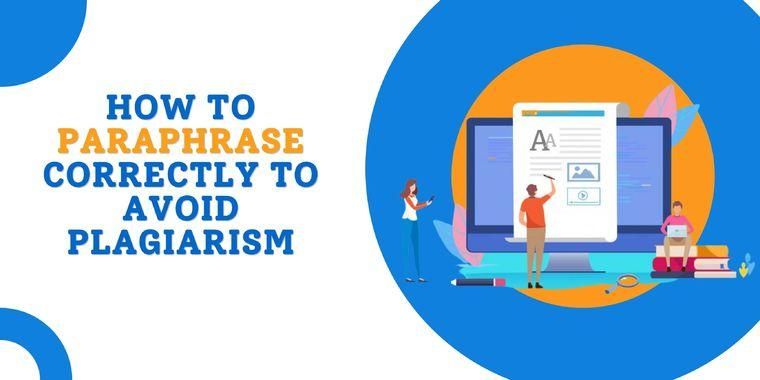When it comes to paraphrase to avoid online plagiarism, there are right and wrong ways to go about it. Many students make the mistake of simply changing a few words in the original text and calling it their own. This is not only lazy but also considered plagiarism. You could face severe consequences if caught plagiarizing. How can you avoid online plagiarism?
Introduction: Defining plagiarism and how to avoid it
Plagiarism is a severe offense that can lead to consequences such as a failed grade, expulsion from school, or job loss. Plagiarism is using someone else's work or ideas without giving credit to the original author. To avoid plagiarism, it is important to paraphrase and cite any sources that are used properly.
When paraphrasing, using your own words is essential and not simply changing a few words here and there. The idea behind paraphrasing is to express someone else's ideas in your own words. This can be done by reading the original passage and then writing down the main points in your own words. Be sure to cite any sources that you use when paraphrasing. It is also essential to avoid plagiarism when using direct quotes.
Paraphrasing: What it is and how to do it correctly
You must give the original author credit when summarizing or paraphrasing someone else’s work. This can be done in several ways, such as using a signal phrase or quotation. A signal phrase is a phrase that alerts your reader that you are about to discuss someone else’s work. For example, “In her essay ‘The Right to Privacy,’ Carol Anne Warren argues that…” followed by a quotation from the essay.
Quoting should be used sparingly, as too much-quoted material will make your paper appear choppy and difficult to read. When you use quotations, introduce them properly and explain their significance later in the paper. It is also important to note that there are different rules for quoting poetry and prose.
Common mistakes people make when paraphrasing
There are a few common mistakes people make when paraphrasing to avoid plagiarism. The first is not changing enough of the original text. It is important to change both the words and structure of the sentence. This will ensure your paraphrase is not too similar to the original text.
Another mistake people make when paraphrasing is not correctly citing their sources. When you are an article rewriter with paraphrasing-tool.net, you must include a citation to give credit to the original author. Without a citation, your paraphrase could be considered plagiarism.
The last common mistake people make when paraphrasing is failing to proofread their work. After you have finished paraphrasing, you must read over your work to ensure there are no errors.
Why paraphrasing is important
There are many ways to paraphrase text when writing essays or articles to avoid plagiarism. However, not all paraphrasing techniques are effective in avoiding plagiarism. This article will explain the correct way of paraphrasing to avoid online plagiarism.
It is essential to use paraphrasing when you do not have enough time to write a complete essay or article. This is particularly important if you are a student who needs to submit an assignment immediately.
Conclusion:
When it comes to paraphrasing, there are right and wrong ways to do it. Paraphrasing correctly can help you avoid plagiarism in your writing. When paraphrasing, credit the original source, use your own words, and cite the source. Paraphrasing incorrectly can lead to plagiarism. When paraphrasing, make sure not to copy the original author's words too closely, change the order of the words, or use synonyms for every word. Doing any of these things can result in plagiarism.




















 sunrise
StableDiffusion
sunrise
StableDiffusion
 bonfire friends
StableDiffusion
bonfire friends
StableDiffusion
 sadness
StableDiffusion
sadness
StableDiffusion

 purple skies
StableDiffusion
purple skies
StableDiffusion

 true love
StableDiffusion
true love
StableDiffusion
 My Cheerleader
StableDiffusion
My Cheerleader
StableDiffusion
 womans transformation to happiness and love
StableDiffusion
womans transformation to happiness and love
StableDiffusion
 future life together of adventures
StableDiffusion
future life together of adventures
StableDiffusion

















